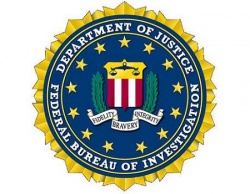
FBI and NSA allegedly have backdoors into servers from Google, Microsoft, Yahoo, YouTube, Apple, and more
Well, this is a bit disheartening (if not completely unsurprising). The Washington Post has written an eye-opening report detailing how — no matter which multi-billion dollar company you trust your data with — none of it is safe from prying eyes. This is according to an informant who works as a “career intelligence offer,” and has handed over slides detailing a top-secret program code-named “PRISM.”
The PRISM data collection program provides the FBI and National Security Agency (NSA) with easy access into the servers of Google, Microsoft, Apple, Yahoo, Skype, YouTube, PalTalk, AOL, and Dropbox “coming soon.” There, they can mine and extract whatever data they want, whenever they want. Everything from audio, video, photos, emails, documents, and connections logs — basically everything you may have thought was private.
This comes after news that the NSA had been working with Verizon to collect millions of call logs from customers over the past 3 months, all in an effort to help prevent terrorism, and keep you safe. You can read more in the full Washington Post article here.
Update 1: Apple responds to CNBC saying, “We have never heard of PRISM. We do not provide any government agency with direct access to our servers..”
Update 2: Google responds saying, “Google cares deeply about the security of our users’ data. We disclose user data to government in accordance with the law, and we review all such requests carefully. From time to time, people allege that we have created a government ‘back door’ into our systems, but Google does not have a ‘back door’ for the government to access private user data.”
Update 3: Facebook responded with, “We do not provide any government organization with direct access to Facebook servers. When Facebook is asked for data or information about specific individuals, we carefully scrutinize any such request for compliance with all applicable laws, and provide information only to the extent required by law.”